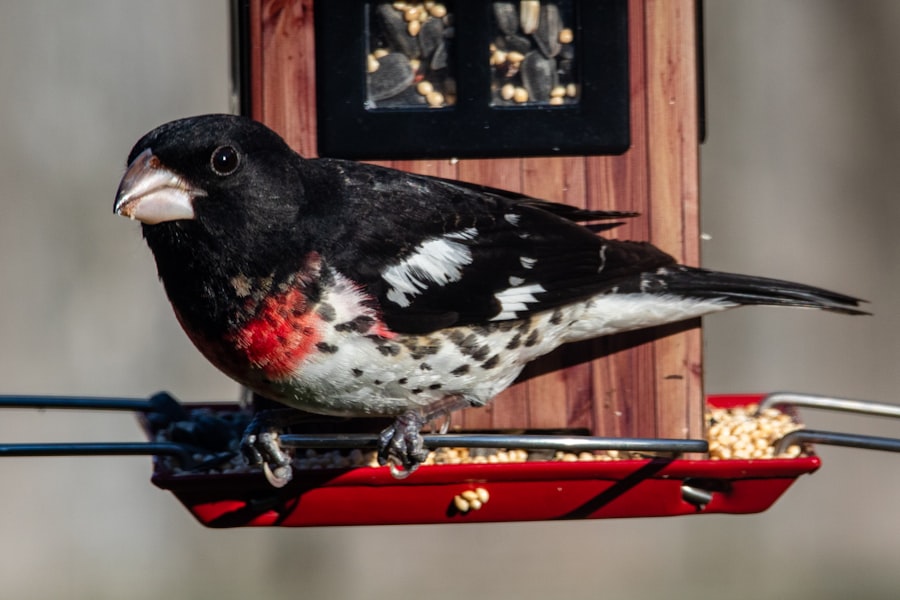Keeping chickens offers numerous benefits for individuals and households. Chickens provide a reliable source of fresh, organic eggs, free from artificial additives and antibiotics commonly found in commercial egg production. For those interested, chickens can also serve as a sustainable meat source.
Chickens are effective natural pest controllers, consuming various insects and reducing the need for chemical pesticides in gardens and yards. Their droppings serve as a nutrient-rich fertilizer, enhancing soil quality and promoting sustainable gardening practices while minimizing reliance on synthetic fertilizers. Beyond practical advantages, chicken-keeping can be an enjoyable and educational experience.
Chickens exhibit distinct personalities and behaviors, providing entertainment and fostering a connection to nature. This activity can also serve as a valuable learning opportunity for both children and adults, offering insights into animal husbandry, food production, and sustainable living practices.
Table of Contents
Key Takeaways
- Keeping chickens can provide a sustainable source of fresh eggs and natural pest control for your garden.
- When choosing the right breed of chicken, consider factors such as egg production, temperament, and climate adaptability.
- Setting up a coop and run requires careful consideration of space, ventilation, and predator protection.
- Feeding and caring for chickens involves providing a balanced diet, clean water, and regular health checks.
- Common health issues in chickens include parasites, respiratory infections, and egg-laying problems, which require prompt attention and treatment.
- Collecting and using eggs involves proper storage and handling to ensure freshness and safety for consumption.
- Legal considerations for keeping chickens may include local zoning laws, noise regulations, and waste management requirements.
Choosing the Right Breed of Chicken
Purpose of Keeping Chickens
First and foremost, you’ll want to determine whether you’re looking to keep chickens primarily for egg production, meat production, or a combination of both. Different breeds excel in one area over the other, so it’s crucial to choose a breed that aligns with your goals.
Climate Considerations
Another vital consideration is the climate in which you live. Some breeds are better suited to cold climates, while others thrive in warmer environments. It’s essential to choose a breed that is well-adapted to the climate in your area to ensure their health and well-being.
Breed Temperament and Space Requirements
Additionally, you’ll want to consider the temperament of the breed and the space requirements. Some breeds are known for being more docile and friendly, making them ideal for families with children, while others may be more skittish or aggressive. It’s also important to consider the size of the breed, as smaller breeds require less space to roam, whereas larger breeds need more room to forage and roam freely.
Setting Up a Coop and Run

Setting up a coop and run for your chickens is essential for their health and safety. The coop is where the chickens will sleep and lay their eggs, while the run is an outdoor area where they can roam and forage. When setting up a coop, it’s important to provide enough space for each chicken to roost comfortably and lay their eggs.
Additionally, the coop should be well-ventilated and provide protection from predators. The run should be spacious enough to allow the chickens to move around freely and engage in natural behaviors like scratching and dust bathing. It’s important to provide some form of shelter within the run, such as a covered area or trees, to protect the chickens from the elements.
When designing the coop and run, it’s important to consider the materials used. The coop should be constructed from sturdy materials that provide insulation and protection from the elements, while the run should be enclosed with wire mesh to prevent predators from gaining access. It’s also important to consider the placement of the coop and run.
They should be situated in an area that receives plenty of sunlight and is well-drained to prevent waterlogging. Additionally, it’s important to provide access to fresh water and food within both the coop and run to ensure the chickens’ basic needs are met.
Feeding and Caring for Chickens
Feeding and caring for chickens is an important aspect of keeping them healthy and productive. Chickens require a balanced diet that includes a mix of grains, protein, vitamins, and minerals. A commercial feed formulated specifically for chickens is a convenient option that provides all the necessary nutrients they need.
Additionally, chickens can benefit from supplemental treats such as fruits, vegetables, and mealworms. It’s important to provide access to fresh water at all times, as chickens can quickly become dehydrated without it. The water should be kept clean and free from contaminants to prevent illness.
In addition to feeding, regular care is essential for maintaining the health of your chickens. This includes regular cleaning of the coop and run to remove droppings and prevent the buildup of bacteria. It’s also important to regularly check for signs of illness or injury and provide appropriate care as needed.
Chickens also require regular grooming, including nail trimming and feather maintenance. This helps to prevent issues such as overgrown nails or feather mites that can cause discomfort or health problems for the birds.
Dealing with Common Health Issues
Like any animal, chickens are susceptible to a variety of health issues that can impact their well-being. One common health issue in chickens is parasites such as mites and lice. These pests can cause irritation and discomfort for the birds, leading to decreased egg production and overall health.
Regularly inspecting your chickens for signs of parasites and providing appropriate treatment is essential for preventing infestations. Another common health issue in chickens is respiratory infections. These can be caused by poor ventilation in the coop or exposure to damp or drafty conditions.
It’s important to provide adequate ventilation in the coop and keep it clean and dry to prevent respiratory issues from developing. Additionally, chickens can be prone to injuries such as cuts or scrapes from fighting or predator attacks. It’s important to promptly address any injuries by cleaning and treating them to prevent infection.
Regular health checks and observation of your chickens’ behavior are essential for identifying any potential health issues early on. Seeking advice from a veterinarian experienced in poultry care can also be helpful in addressing any health concerns that may arise.
Collecting and Using Eggs

The Benefits of Fresh Eggs
Fresh eggs have a superior taste and texture compared to store-bought eggs, making them ideal for cooking and baking. They can be used in a variety of dishes such as omelets, quiches, cakes, and more.
In addition to consuming eggs yourself, you may also choose to share them with friends and family or even sell them locally. Selling eggs can be a way to offset some of the costs associated with keeping chickens while providing others with access to high-quality, fresh eggs.
Using Eggshells in the Garden
Eggshells can also be crushed and added to compost or used as a natural fertilizer in the garden. This helps to return valuable nutrients back into the soil, promoting healthy plant growth.
Legal Considerations for Keeping Chickens
Before getting started with keeping chickens, it’s important to be aware of any legal considerations that may apply in your area. Some cities or neighborhoods have specific regulations regarding keeping chickens, such as limits on the number of birds allowed or restrictions on roosters due to noise concerns. It’s important to familiarize yourself with any local ordinances or zoning laws that may apply to keeping chickens on your property.
This can help you avoid potential fines or legal issues down the line. In addition to local regulations, it’s also important to consider any homeowners’ association rules that may apply if you live in a community with an HOSome HOAs have specific guidelines regarding keeping livestock on residential properties that may impact your ability to keep chickens. By being aware of and complying with any legal considerations related to keeping chickens, you can ensure a smooth and trouble-free experience while enjoying the many benefits that come with raising these wonderful birds.
In conclusion, keeping chickens can be a rewarding experience that provides numerous benefits including fresh eggs, natural pest control, high-quality fertilizer, entertainment, and a connection to nature. When choosing a breed of chicken, it’s important to consider factors such as egg or meat production, climate suitability, temperament, and size. Setting up a well-designed coop and run is essential for providing a safe and comfortable environment for your chickens.
Feeding and caring for chickens involves providing a balanced diet, fresh water, regular grooming, and attentive care. Dealing with common health issues requires vigilance in monitoring your chickens’ health and providing appropriate treatment when needed. Collecting eggs from your chickens offers a delicious reward while also providing opportunities for sharing or selling them locally.
Finally, being aware of legal considerations related to keeping chickens is essential for ensuring compliance with local regulations and avoiding potential legal issues. Overall, keeping chickens can be a fulfilling endeavor that offers numerous practical benefits along with joy and connection to nature.
If you’re considering keeping chickens, you’ll want to make sure you have a proper chicken coop and nest box set up. Poultry Wizard has a great article on chicken coop nest box that provides valuable information on creating a comfortable and safe environment for your feathered friends. It’s important to consider the floor of the chicken coop as well, which is covered in another helpful article on their site. And if you’re also thinking about keeping ducks, they have a comprehensive guide on what to feed them to ensure their health and well-being.
FAQs
What are the benefits of keeping chickens?
Keeping chickens can provide a sustainable source of fresh eggs, natural pest control for your garden, and a source of organic fertilizer for your plants.
What do chickens need to thrive?
Chickens need a secure and spacious coop, access to fresh water, a balanced diet of feed and kitchen scraps, and regular veterinary care to thrive.
Are there any local regulations or restrictions on keeping chickens?
Many cities and towns have regulations regarding the number of chickens allowed, coop size and placement, and noise restrictions. It’s important to check with your local government before keeping chickens.
What are some common challenges of keeping chickens?
Common challenges of keeping chickens include predators, disease, and maintaining a clean and odor-free coop. Additionally, chickens require daily care and attention.
What are some popular chicken breeds for beginners?
Popular chicken breeds for beginners include Rhode Island Reds, Plymouth Rocks, and Orpingtons. These breeds are known for their hardiness, good egg production, and friendly dispositions.
Meet Walter, the feathered-friend fanatic of Florida! Nestled in the sunshine state, Walter struts through life with his feathered companions, clucking his way to happiness. With a coop that’s fancier than a five-star hotel, he’s the Don Juan of the chicken world. When he’s not teaching his hens to do the cha-cha, you’ll find him in a heated debate with his prized rooster, Sir Clucks-a-Lot. Walter’s poultry passion is no yolk; he’s the sunny-side-up guy you never knew you needed in your flock of friends!







